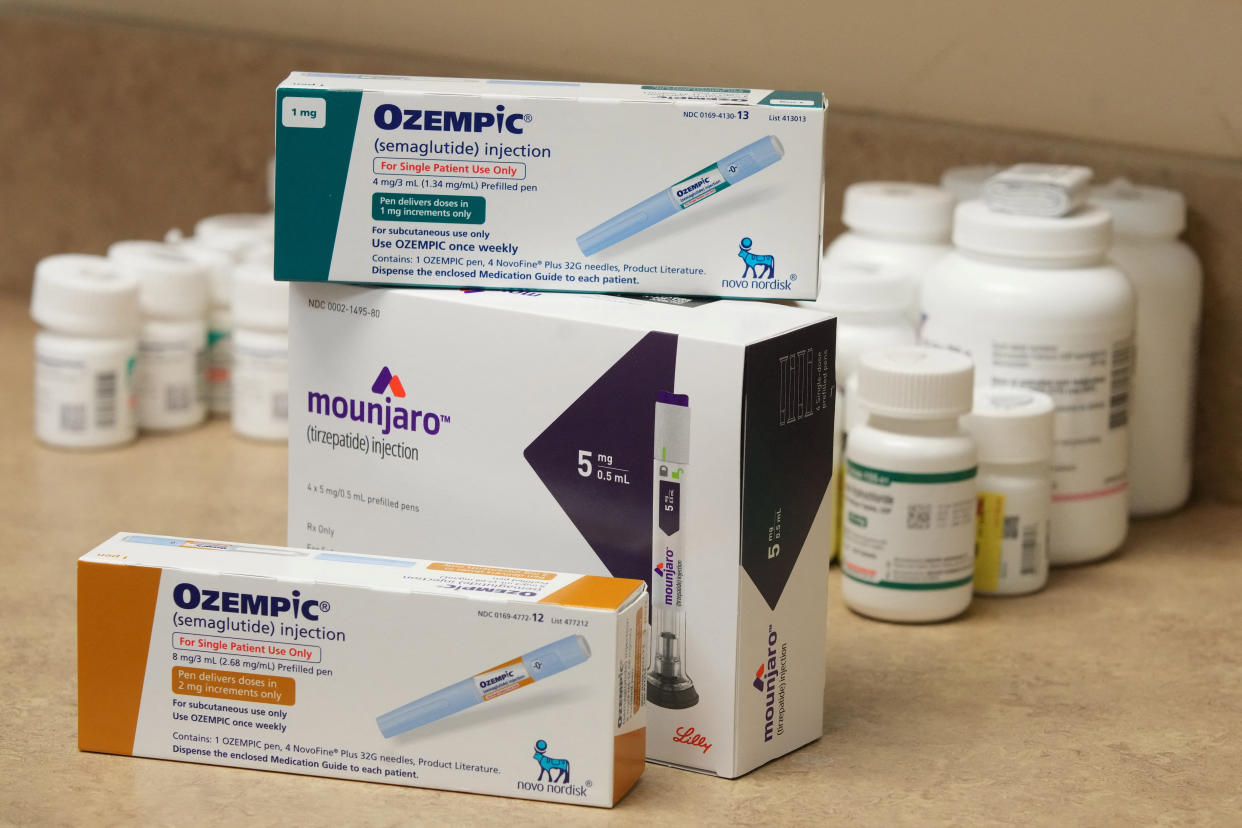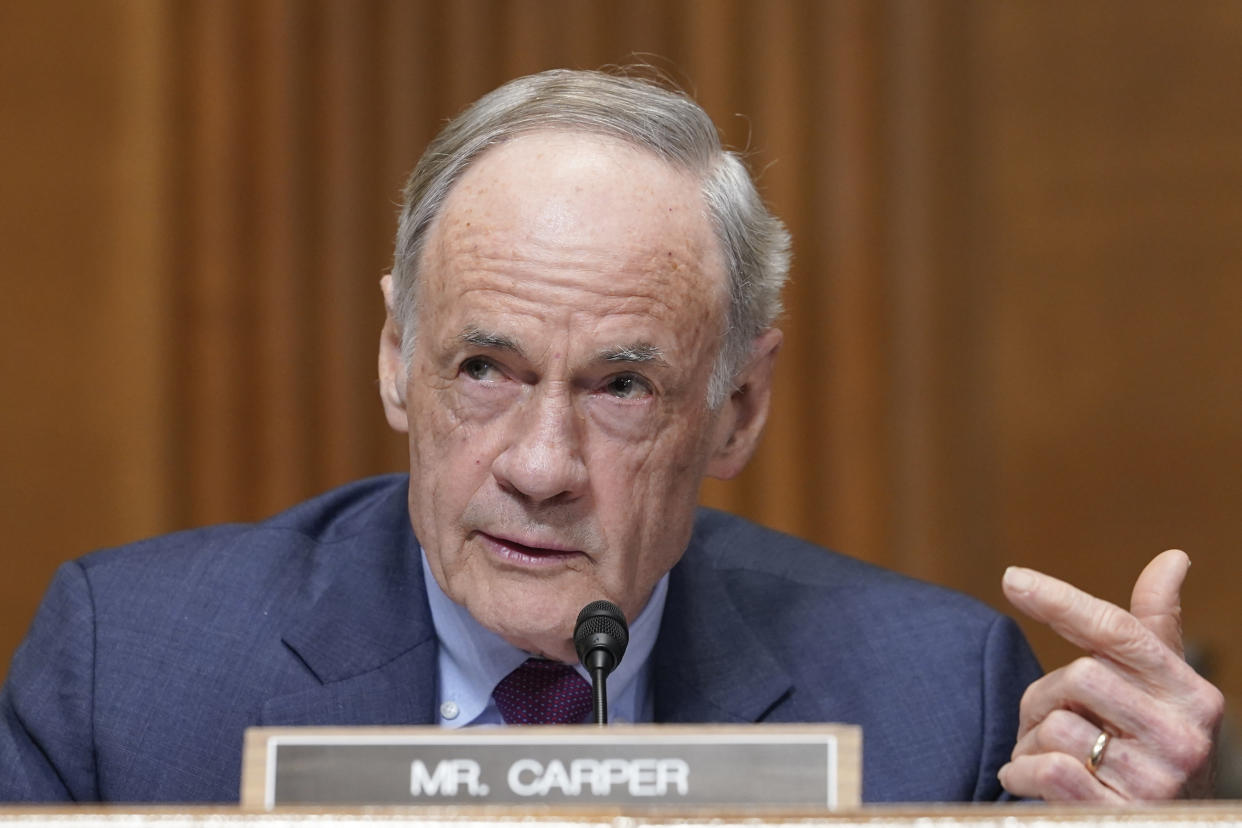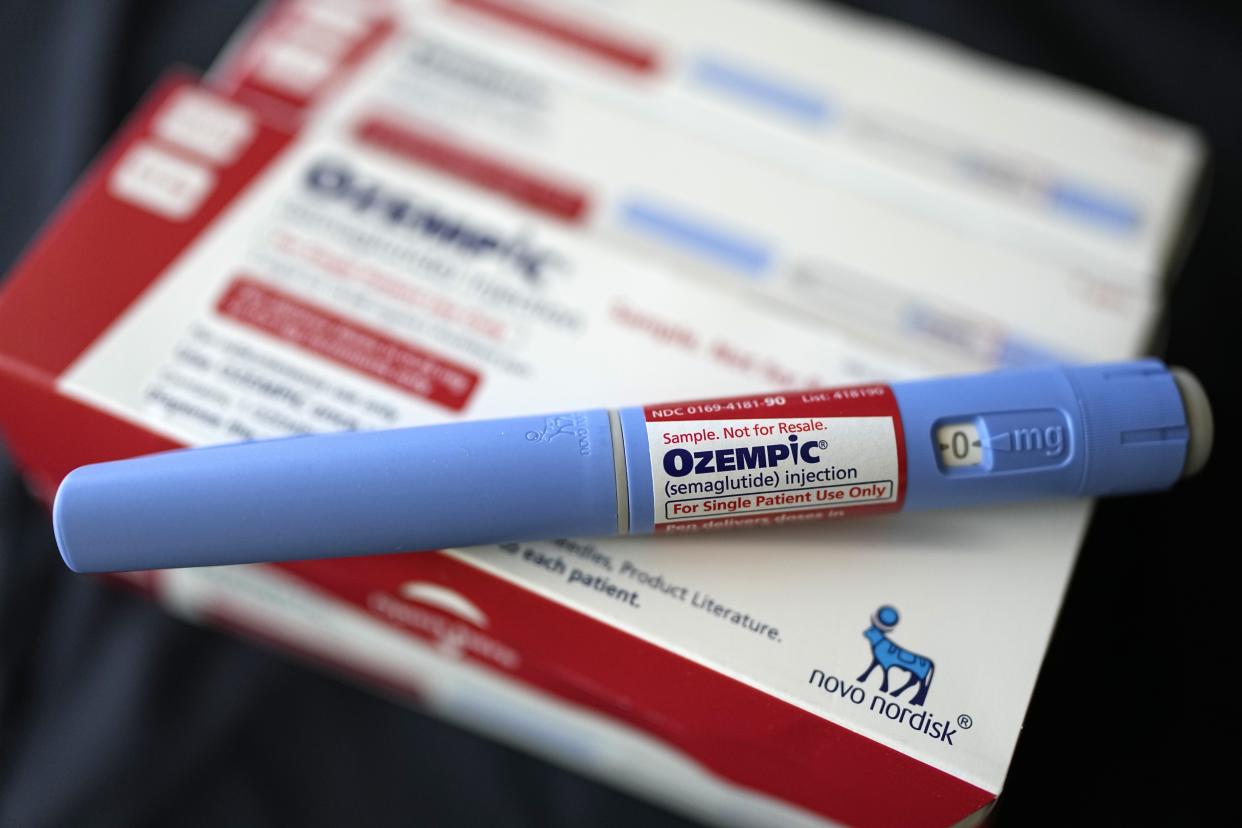Pharma lobbying for weight loss drugs could soon pay off
The recent surge in popularity of weight loss and Type 2 diabetes drugs Wegovy, Ozempic, and Mounjaro have been fueled by celebrity and influencer usage — but the success for the drugmakers has been a decade, and millions of lobbying dollars, in the making.
And there is still one milestone the companies have yet to reach: passing a bill that would reverse the long-standing ban on Medicare covering obesity drugs, which has floundered for 10 years.
That bill is the Treat and Reduce Obesity Act (TROA), which has been introduced in every session of Congress since late 2012 by Sen. Thomas Carper, a Democrat from Delaware, though it has never advanced beyond that.
Carper, along with Sen. Bill Cassidy (R-La.) and Reps. Raul Ruiz (D-Calif.) and Brad Wenstrup (R-Ohio), reintroduced the bill for the seventh time since 2012 on Thursday.
The bill, among other things, directs Medicare Part D to cover obesity treatments if "used for the treatment of obesity … or for weight loss management for an individual who is overweight … and has one or more related co-morbidities."
A key difference from the 2012 version is a shift to require Medicare Part D coverage, rather than coverage based on "if the [Health] Secretary determines that coverage of such a drug under this part is appropriate."
In 2012, estimates showed 42% of Americans will be obese by 2030, according to that version of the bill. The latest version increased that estimate to 47%.
The bill highlights the cost of obesity to the annual Medicare budget: "On average, a Medicare beneficiary with obesity costs $2,018 (in 2019 dollars) more than a healthy-weight beneficiary."
In comparison, there are concerns that the cost of the weight loss drugs — almost $1,000 per month — could bankrupt Medicare. And questions about whether or not it is a chronic disease drug or a lifestyle drug will determine the fate of the bill.
Ozempic maker Novo Nordisk (NVO) is the only company with a drug approved for obesity without Type 2 diabetes. It has spent $11 million on food and travel for doctors to discuss products including Wegovy and Ozempic and spent $4.6 million on ongoing lobbying in Congress in 2022 alone.
In the first quarter of this year, the company spent more than $1.3 million on lobbying Congress on various topics, including obesity drugs — double what it spent in all of 2013, the first full year the bill was introduced, according to data from OpenSecrets.org.

Novo Nordisk also hired the lobbying firm Arnold & Porter, which recently hired a former sponsor of the bill, Rep. Ron Kind (D-Wis.), as a senior strategic adviser. Kind won’t be allowed to lobby the bill for a year, according to ethics rules.
In addition to engaging doctors, the company has also lobbied state governments and obesity advocates to create awareness about its products and increase coverage for them.
Lobbying efforts
Without commercial insurance and Medicare buy-in, weight loss drugs remain inaccessible to a large swath of Americans. But employers and commercial insurers are acting cautiously.
Most insurers either require prior approval for the drug to be used or are sticking to only covering Type 2 diabetes patients. Medicare has been banned from covering these drugs for the use of weight loss alone for decades.
This is why Novo and its competitors want to convince not just Congress but also state legislatures to cover the drugs for obesity. State governments represent a large population of covered lives, and some state legislatures govern what can and cannot be covered by the state's budget for its employees' health spend.

The company has either directly hosted or been indirectly involved in, through advocates from organizations sponsored by Novo (and Eli Lilly (LLY)), policy events throughout the country. Yahoo Finance reviewed programs from at least two of these events, one in Philadelphia in August 2021 and one in New Jersey in 2022.
The speakers included a member of Novo Nordisk or the Obesity Action Coalition (OAC), which is funded by Novo Nordisk. The company contributes more than $500,000 to OAC annually and has been a corporate partner since 2013, according to OAC’s website. (Eli Lilly contributes more than $100,000 annually, according to the website.)
An attendee of the event in Philadelphia, who was not authorized to speak to media, said weight loss drugs were discussed.
New Jersey Assemblyman Herb Conaway, chair of the Assembly health committee, is now the sponsor of a bill that would cover obesity drugs under all state-administered health plans, such as those for state employees, public education employees, and Medicaid enrollees.
A request for comment was not returned by Conaway’s office.
Eli Lilly has also sponsored policy events that included discussion of obesity as a chronic disease. Its drug, Mounjaro, is awaiting FDA approval for patients with obesity without Type 2 diabetes. Pfizer (PFE) is a recent entrant in the space, with an oral drug candidate currently in clinical trials.
'The opioid playbook'?
Several experts in the health insurance industry spoke to Yahoo Finance on background, since they were unauthorized to speak to the media. The common refrain among them: "This is the opioid playbook."
From 1996 to 2001, Purdue Pharma, the maker of OxyContin, began a lobbying campaign that focused on pain management. Introducing that idea at conferences and forums hosted by Purdue and educating medical professionals about the drug as well as training them on how to speak about it was what led to the widespread use of opioids and the current epidemic.
Others said this is too harsh a comparison and that it was more like the debate over Medicare coverage for erectile dysfunction drugs Viagra and Cialis. At that time, Medicare had been covering the drug, and outrage poured in over tax dollars being used for "lifestyle prescription drugs."
Paying for doctors' food and travel and educating them on the drugs is a practice that landed Novo Nordisk in trouble across the pond, with the UK’s drug lobbying group suspending the company for two years. Unlike in the US, the UK does not allow these lobbying strategies.

Lobbying itself is legal and many other companies employ similar strategies to help boost sales in the US. But the current price tag of the obesity drugs has caused concern for those who would foot the bill — employers, commercial insurers, and the federal government.
When asked about the ongoing lobbying efforts, the company said: "We advocate for the full continuum of care for patients with obesity, including coverage for anti-obesity medications in Medicare Part D. We also actively work with private insurers and employers to encourage broader coverage of anti-obesity medicines."
Novo Nordisk told Yahoo Finance it has been partnering with organizations to "provide fact-based context and education on this misunderstood disease" as well as "working with influential individuals to help change the societal perspective of obesity."
Katherine Hempstead, a senior health policy advisor at the Robert Wood Johnson Foundation who attended one of the policy events in the US, said it wasn’t blatant selling of the product.
But the bill in Congress could be a huge push towards greater coverage of the drug, she said.
"A part of me feels like there’s an inevitability to this, at some point these drugs will get covered in some ways. Especially when you hear about people going to compounding and getting dangerous substitutes because they want them so much," Hempstead said.
That is why the lobbying for weight loss drugs is likely only to increase, Khrysta Baig, a health policy researcher at Vanderbilt University, told Yahoo Finance.
"There seems to be greater energy behind the bill as new and pipeline anti-obesity medications have gained public attention. With Wegovy’s [semaglutide] approval in 2021 and the expected approval of tirzepatide [Eli Lilly’s Mounjaro] for weight loss sometime this year, public and industry interest in Medicare coverage seems to have increased," Baig said.

Surprise surge
The popularity of the products may have taken Novo by surprise. The company almost doubled its 2023 forecast after first quarter sales showed a 25% increase in sales based on a boost from Wegovy and Ozempic — and that's in a market without widespread insurance coverage.
Novo had to reduce the production of lower dosages of Wegovy as a result of the surge in interest and instead focus on higher dosages to help maintain the care of patients. That strain put an emphasis on Novo's older drug, Saxenda, which has also been added to the FDA's drug shortage list.
Dr. Angela Fitch, president of the Obesity Medicine Association and one of the doctors paid as a consultant for Novo, said company officials told her they didn’t predict the new drugs taking off the way they have.
"Once you get out something that actually works, the people will want it," Fitch, chief medical officer of health startup knownwell, said, noting there is a potential population of about 120 million Americans who could benefit.
Or as General Catalyst advisor Dr. Stephen Klasko put it: "Yes, they’re for obesity, but they’ve really become a lifestyle drug. If you’re in one of the clubs in Miami, where you used to talk about your plastic surgery, you’re now talking about which GLP-1 you’re on."
He added, "All you have to know is Weight Watchers’ stock went up 45% when they announced that they’re selling GLP-1s now."
Beyond the current shortage of products, Novo is also responsible for a 400% spike in spending on Ozempic for one employer and a 73% spike in utilization for one state’s education budget on Wegovy and Saxenda.
In recent conversations with employers, weight care management startup Found's CEO Sara Jones Simmer said she was hearing about surges in healthcare spending.
"[Employers] were seeing Ozempic go from not even being in the top 20 of drug costs literally to number one within six months time," Jones Simmer told Yahoo Finance. "We talked to one employer that shared…Ozempic prescriptions had increased 400% year over year, and they said there’s no way the number of Type 2 diabetics in our organization has changed 400% so where is this coming from?"
And employers can’t pull the drugs off their formulary, denying coverage to those who need it. But at the same time, "if they don’t do anything about it, people are going to get on these medications that are designed to be taken in perpetuity, that cost, on average, $17,000 a year, and that could bankrupt especially a small employer," she said.
Similarly, New Jersey’s state education benefits plan has seen a 73% increase in the use of Wegovy and Saxenda, according to documents viewed by Yahoo Finance.
Ozempic ranks in the top three for drug spending for fiscal year 2022 and is the top drug in the diabetes category, accounting for 12% of total plan spend, according to the documents.
Novo Nordisk declined to comment on whether or not they anticipated this level of demand. But it is still facing a shortage of both Ozempic and Wegovy, after a slow initial rollout of Wegovy last year, and has scrambled to expand production more quickly than it anticipated. The company has also had to pause advertising for the drugs.
"A second CMO [manufacturer] is now ready to begin production to help increase Wegovy supply capacity, and a third site at one of our current CMOs is expected later this year," the company said.
Follow Anjalee Khemlani on Twitter @AnjKhem
Read the latest financial and business news from Yahoo Finance
